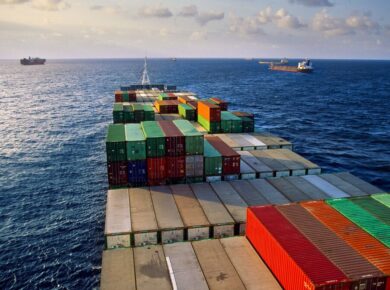The ‘window to the world’ concept under the CEPA is proving to be effective for Indian businesses in the UAE.
Dubai and the United Arab Emirates (UAE) are seeing increased trade flows following the establishment of the Comprehensive Economic Partnership Agreement (CEPA) with India. However, two-way investments are also growing, with Indian businesses investing in Dubai’s “Window to the World” theme. The planned digital “green corridor” will also enable fast-track approvals for shipments from India, which are processed in Abu Dhabi and Dubai, and then shipped out to their end destinations overseas.
The logistics sector is a clear beneficiary of the CEPA deal, given the UAE’s established infrastructure and India’s need for better ways to get its goods across the world. Industry sources believe that the inclusion of chemicals, automotive components, and electronics categories in the CEPA agreement could significantly boost India’s manufacturing sector and enhance the UAE’s position as a gateway to the world. Indian businesses are increasingly establishing operations in the UAE, either through joint ventures or wholly-owned subsidiaries.
In May 2023, the UAE Ministry of Economy will launch a survey to get feedback from UAE business owners, industrialists, and entrepreneurs ahead of negotiations for more Comprehensive Economic Partnership Agreements the country will enter into. The survey will help shape the parameters of discussions with Chile, Vietnam, Ukraine, Kenya, Pakistan, and Thailand.
Dubai has been making significant efforts to attract businesses and investors from around the world. Its strategic location, world-class infrastructure, and business-friendly environment make it an attractive destination for companies looking to expand globally. In recent years, Dubai has made a concerted effort to diversify its economy beyond oil, investing heavily in industries such as tourism, finance, and logistics.
One of the key initiatives driving Dubai’s economic diversification is the Dubai 2040 Urban Master Plan, which sets out a comprehensive roadmap for the city’s growth and development over the next two decades. The plan aims to create a more sustainable, livable, and connected city, with a focus on innovation, technology, and smart solutions.
Another area where Dubai is making significant progress is in its push towards a more sustainable future. The city has set ambitious targets to reduce its carbon footprint and increase its use of renewable energy sources. Dubai is already home to the world’s largest single-site solar park, and plans are underway to further expand its renewable energy capacity.
Dubai is also becoming a hub for innovation and technology, with a growing number of startups and tech companies setting up shop in the city. The Dubai Future Accelerators program is one example of the city’s commitment to fostering innovation and entrepreneurship, by bringing together startups, government entities, and private sector companies to collaborate on cutting-edge projects.
Despite the challenges posed by the COVID-19 pandemic, Dubai has remained resilient and continues to attract businesses and investors from around the world. The UAE-India CEPA deal is just one example of the city’s efforts to strengthen its trade and investment ties with key partners. With its favorable business climate, strategic location, and ambitious plans for the future, Dubai is well-positioned to continue driving economic growth and prosperity in the years to come.
The Comprehensive Economic Partnership Agreement (CEPA) between India and the United Arab Emirates (UAE) has provided a significant boost to Indian businesses operating in the UAE. One of the key benefits of the agreement is the ‘window to the world’ concept, which has proven to be highly effective in promoting Indian exports and increasing business ties between the two countries.
Under the CEPA, Indian businesses are granted preferential access to the UAE market, with lower tariffs and reduced trade barriers. This has opened up a range of new opportunities for Indian companies, especially in sectors such as pharmaceuticals, textiles, and agriculture. In addition, the CEPA has also facilitated the movement of professionals between the two countries, further strengthening business ties.





